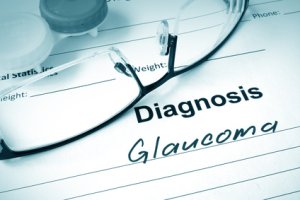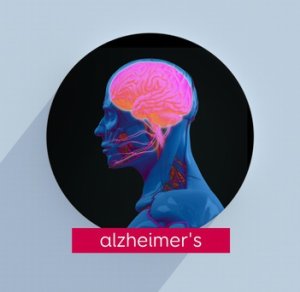Vitamin B3 prevents glaucoma in mice and possibly even in humans
 Mice that are genetically predisposed to glaucoma may avoid the eye disease if vitamin B3 is added to their drinking water. This was seen in a study that is published in the journal Science. The scientists behind the study say that vitamin B3 was surprisingly effective at eliminating the molecular alterations that normally occur with age-related glaucoma. They even see the vitamin as an inexpensive and potentially powerful tool for preventing this disease in the future. People should make sure to get plenty of vitamin B3, and it is also important to know that imbalanced diets, alcohol abuse, and the use of diuretics may easily result in a deficiency of the nutrient.
Mice that are genetically predisposed to glaucoma may avoid the eye disease if vitamin B3 is added to their drinking water. This was seen in a study that is published in the journal Science. The scientists behind the study say that vitamin B3 was surprisingly effective at eliminating the molecular alterations that normally occur with age-related glaucoma. They even see the vitamin as an inexpensive and potentially powerful tool for preventing this disease in the future. People should make sure to get plenty of vitamin B3, and it is also important to know that imbalanced diets, alcohol abuse, and the use of diuretics may easily result in a deficiency of the nutrient.
Read more about vitamin B3 and how it prevents glaucoma in mice and possibly even in humans
- Created on .











 During spring and summer, many people suffer from allergy symptoms and hay fever because their immune system overreacts to airborne pollen. However, according to a new American study, it is possible that different lactic acid bacteria and bifidobacteria can help alleviate the symptoms. The explanation lies in our intestinal microflora and its importance for a properly functioning immune system.
During spring and summer, many people suffer from allergy symptoms and hay fever because their immune system overreacts to airborne pollen. However, according to a new American study, it is possible that different lactic acid bacteria and bifidobacteria can help alleviate the symptoms. The explanation lies in our intestinal microflora and its importance for a properly functioning immune system. Ageing processes are associated with loss of muscle mass and impaired physical performance, both of which tend to lower quality of life. It is commonly known that coenzyme Q10 plays a significant role in cellular energy turnover and protects against oxidative stress. Now, two independent cohort studies even show a relation between the body’s Q10 status and muscle strength. Earlier research even suggests that Q10 supplements may help older people develop more youthful muscle fibers. Individuals who take cholesterol-lowering statins are advised to take Q10 supplements.
Ageing processes are associated with loss of muscle mass and impaired physical performance, both of which tend to lower quality of life. It is commonly known that coenzyme Q10 plays a significant role in cellular energy turnover and protects against oxidative stress. Now, two independent cohort studies even show a relation between the body’s Q10 status and muscle strength. Earlier research even suggests that Q10 supplements may help older people develop more youthful muscle fibers. Individuals who take cholesterol-lowering statins are advised to take Q10 supplements. According to a study that is published in PLoS Medicine’s Special Issue on Dementia shows that low levels of polyunsaturated fatty acids in the brain may speed up the development of Alzheimer’s disease. It is therefore vital not to shy away from dietary fats. What is important, however, is to consume unspoiled sources of omega-3 and omega-6 fatty acids in the proper balance. Polyunsaturated fatty acids have numerous functions in the brain, on which our nervous system, cardiovascular system, memory, learning ability, and lingual skills depend.
According to a study that is published in PLoS Medicine’s Special Issue on Dementia shows that low levels of polyunsaturated fatty acids in the brain may speed up the development of Alzheimer’s disease. It is therefore vital not to shy away from dietary fats. What is important, however, is to consume unspoiled sources of omega-3 and omega-6 fatty acids in the proper balance. Polyunsaturated fatty acids have numerous functions in the brain, on which our nervous system, cardiovascular system, memory, learning ability, and lingual skills depend. Approximately one billion people worldwide lack vitamin D because they get too little sunlight, they overuse suncream, or they have chronic diseases that prevent proper utilization of the nutrient. This was shown in a new study that is published in The Journal of the American Osteopathic Association. During the summer period, health authorities and organizations issue warnings against the sun and recommend the use of suncream. These campaigns, however, should ideally be accompanied by recommendations on how to get enough vitamin D from other sources. Otherwise, the campaigns may do more harm than good, as all cells in the body need this essential nutrient, and the sun is the single best vitamin D source.
Approximately one billion people worldwide lack vitamin D because they get too little sunlight, they overuse suncream, or they have chronic diseases that prevent proper utilization of the nutrient. This was shown in a new study that is published in The Journal of the American Osteopathic Association. During the summer period, health authorities and organizations issue warnings against the sun and recommend the use of suncream. These campaigns, however, should ideally be accompanied by recommendations on how to get enough vitamin D from other sources. Otherwise, the campaigns may do more harm than good, as all cells in the body need this essential nutrient, and the sun is the single best vitamin D source. Alzheimer’s disease causes brain malfunctions, and the condition is the leading cause of dementia. According to a studies of humans and mice, there may be a link between borderline vitamin A deficiency and an increased risk of Alzheimer’s disease. Vitamin A is important for the immune system, but it is also a powerful antioxidant that protects neurons and other cells. Vitamin A deficiencies are widespread globally. In the industrialized countries, we mainly see vitamin A deficiencies in connection with unbalanced diets, ageing, and chronic illness.
Alzheimer’s disease causes brain malfunctions, and the condition is the leading cause of dementia. According to a studies of humans and mice, there may be a link between borderline vitamin A deficiency and an increased risk of Alzheimer’s disease. Vitamin A is important for the immune system, but it is also a powerful antioxidant that protects neurons and other cells. Vitamin A deficiencies are widespread globally. In the industrialized countries, we mainly see vitamin A deficiencies in connection with unbalanced diets, ageing, and chronic illness. Most people lack omega-3 fatty acids that are vital for the brain, the nervous system, and the cardiovascular system. Omega-3 fatty acids also have anti-inflammatory and cancer-fighting properties. It is important to consume omega-3 and omega-6 fatty acids in the right balance in order to benefit from their many health effects. But how do we make sure to get enough omega-3 fatty acids that we can utilize? And what is the difference between ALA, EPA, and DHA?
Most people lack omega-3 fatty acids that are vital for the brain, the nervous system, and the cardiovascular system. Omega-3 fatty acids also have anti-inflammatory and cancer-fighting properties. It is important to consume omega-3 and omega-6 fatty acids in the right balance in order to benefit from their many health effects. But how do we make sure to get enough omega-3 fatty acids that we can utilize? And what is the difference between ALA, EPA, and DHA? Science has found a link between unstable blood sugar levels, insulin resistance, type 2 diabetes, and an increased risk of developing Alzheimer’s disease (the leading cause of dementia). Type 2 diabetes is spreading like a bushfire, and people many are unware that they have early stages of the disease, typically characterized by fatigue, overweight, and cravings for fast carbohydrates or stimulants. People with Alzheimer’s disease have insulin resistance of the brain, which is why this disease is now referred to as type 3 diabetes. Because it takes many years for Alzheimer’s disease to develop, there is every reason in the world to start early prevention with exercise and a blood sugar-stabilizing diet. Also, a particular trace element may help increase insulin sensitivity, which is why it is vital to get enough of this nutrient.
Science has found a link between unstable blood sugar levels, insulin resistance, type 2 diabetes, and an increased risk of developing Alzheimer’s disease (the leading cause of dementia). Type 2 diabetes is spreading like a bushfire, and people many are unware that they have early stages of the disease, typically characterized by fatigue, overweight, and cravings for fast carbohydrates or stimulants. People with Alzheimer’s disease have insulin resistance of the brain, which is why this disease is now referred to as type 3 diabetes. Because it takes many years for Alzheimer’s disease to develop, there is every reason in the world to start early prevention with exercise and a blood sugar-stabilizing diet. Also, a particular trace element may help increase insulin sensitivity, which is why it is vital to get enough of this nutrient. According to researchers, women with weak thighs and hamstrings have an increased risk of developing knee osteoarthritis. Of course, leg muscle exercise is important for preventing this condition, but adequate nutrient intake and maintenance of the right body weight also contribute. For those who are already affected by knee osteoarthritis, glucosamine supplements can be useful. Make sure to choose glucosamine sulfate and to stick with glucosamine supplements that are listed as medical drugs if you want to be sure to obtain the desired effect.
According to researchers, women with weak thighs and hamstrings have an increased risk of developing knee osteoarthritis. Of course, leg muscle exercise is important for preventing this condition, but adequate nutrient intake and maintenance of the right body weight also contribute. For those who are already affected by knee osteoarthritis, glucosamine supplements can be useful. Make sure to choose glucosamine sulfate and to stick with glucosamine supplements that are listed as medical drugs if you want to be sure to obtain the desired effect. "After about one week of taking the Q10 supplement I could feel a huge difference," says 23-year old Alan Piccini, who has been suffering from extreme fatigue and muscle aches ever since he was a child.
"After about one week of taking the Q10 supplement I could feel a huge difference," says 23-year old Alan Piccini, who has been suffering from extreme fatigue and muscle aches ever since he was a child. “Taking capsules with co-enzyme Q10 has freed me of the severe side effects of my cholesterol lowering medicine,” Mrs Franken explains.
“Taking capsules with co-enzyme Q10 has freed me of the severe side effects of my cholesterol lowering medicine,” Mrs Franken explains.